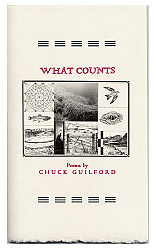Share It On Social Media
This poem will be short, of course, maybe a quick observation, a moment preserved, as in this no-sentence poem by Ezra Pound:
In a Station of the Metro
The apparition of these faces in the crowd;
Petals on a wet, black bough.
Or maybe an apostrophe like H. D.'s "The Pool":
The Pool
Are you alive?
I touch you.
You quiver like a sea-fish.
I cover you with my net.
What are you—banded one?
Winter is Here
with holidays and frozen toes, with endings and beginnings.
The days are short. The nights are long. The air is cold. Good time to light a candle.
Here are are some poems for your winter enjoyment, offered by The Academy of American Poets.
"Stopping by Woods on a Snowy Evening" by Robert Frost
"Those Winter Sundays" by Robert Hayden
"Fishing in Winter" by Ralph Burns
"splitting firewood on a winter afternoon" by Ben Shane
"Winter: My Secret" by Christina Rossetti
"Cut Off the Ears of Winter" by Peter Covino
"A Winter Blue Jay" by Sara Teasdale
"The Snow Man" by Wallace Stevens
"Winter Poem" by Robert Bly (video)
"Winter Field" by Joanna Klink (audio)
"Lines for Winter" by Mark Strand (audio)
Be sure to check the "Related Poems" links on each page. Scroll down and read about the poet.

